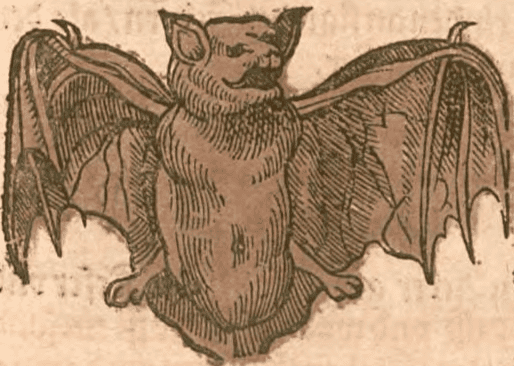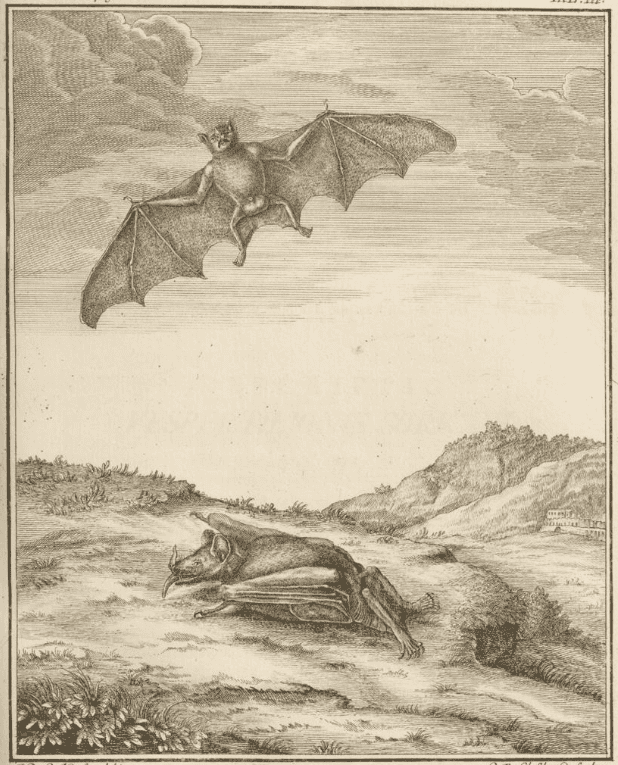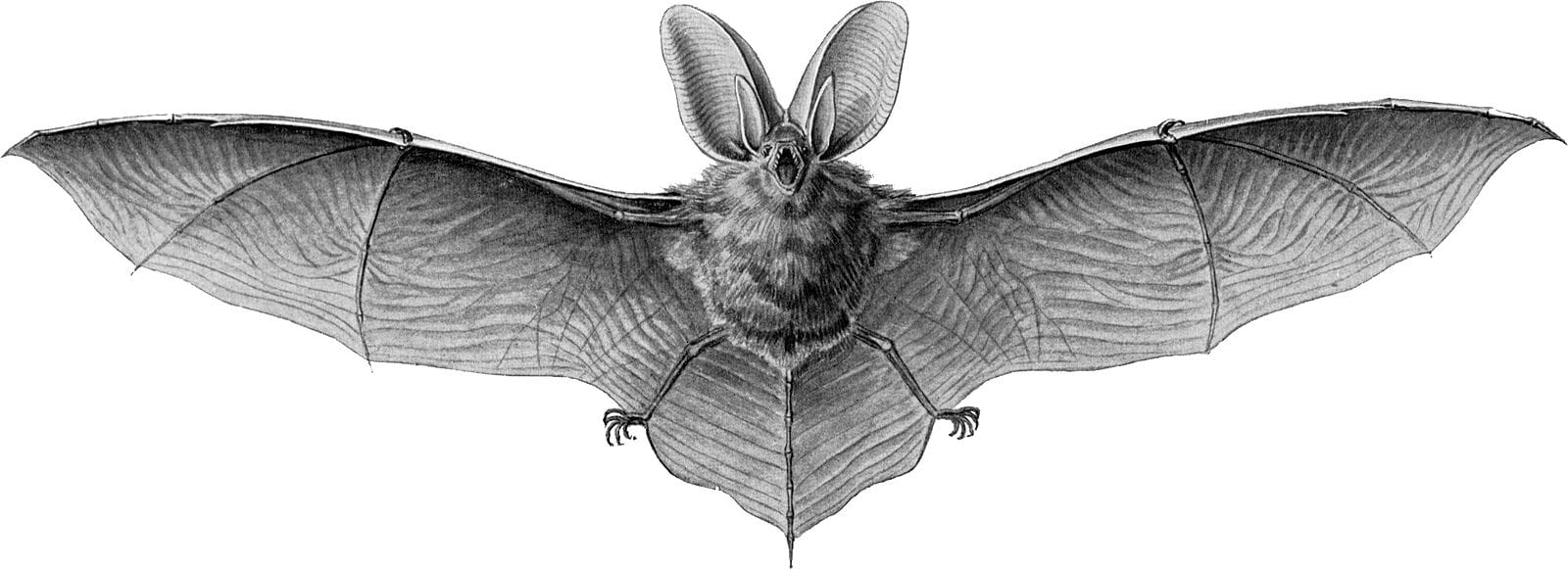Vespertilio Faeces, Bat Feces, Ye Ming Sha 夜明砂Ye Ming Sha (TCM) |

|
 Krauterbuch, Lonitzer, 1578
Krauterbuch, Lonitzer, 1578 Spicilegia Zoologica, Pallas, 1767
Spicilegia Zoologica, Pallas, 1767 Plecotus auritus
Plecotus auritus(Illustration by Ernst Haeckel) (Wikimedia)
Zoological name:
Several species supply this medicine in China:
- Vespertilio superans (Asian particolored bat, official)
- Pipistrellus abrarnus (Japanese House bat)
- Rhinolopus ferrurnequinum (Greater Horseshoe bat)
- Plecotus auritus (Brown Long-eared bat, Brown big-eared bat)
Parts used:
Feces (TCM)
Temperature & Taste:
Cold, dry. Pungent
Classification:
K. Move the Blood
Uses:
1. Clears Liver Heat, Brightens the Eyes:
-Night-Blindness, superficial visual obstruction, Blurry vision
-Cataracts
-Red eyes, bleeding into the whites of the eyes from Liver heat
-used topically in the west for films and superficial visual obstruction
-also Childhood Fright
2. Moves the Blood, Opens Obstructions, Clears Stasis:
-Trauma, Bruising
-accumulations from childhood nutritional impairment (chronic malnutrition)
-traditionally for Malarial disorders, painful dribbling urine and Scrofula
Dose:
Decoction: 3–9 grams
Roasted Powder: 2–5 grams.
Comment:
Bat Blood was applied to stop the growth of Hair. (West)
Preparation:
It is stir-fried or heated in an oven when prepared as a powder for internal use.
Main Combinations:
1. Obstructed or blurry vision, Bat feces (Ye Ming Sha) with Abalone shell (Shi Jue Ming)
2. Night-blindness, Bat feces (Ye Ming Sha) eaten with animal Liver
3. Senile Cataracts, Bat feces (Ye Ming Sha), Calamus (Shi Chang Pu), Astragalus cornplanatus seed (Sha Yuan Zi)
4. Films of the Eyes, Bat Dung, Cuttlefish bone, Rock Sugar, Pearl, Cassia, Tragacanth, applied topically (Syrian ‘Book of Medicine‘, Budge, 1913)
5. Childhood nutritional impairment, with Atracylodes Bai Zhu, Citrus Chen Pi
Cautions:
1. Avoid during pregnancy
2. Generally only used for eye diseases with Heat or Stasis (not deficiency).
3. Bats often contain a number of viruses. Therefore, any Bat product, including the feces, should be heated in an over or stir-fried well before use. For this reason it is best used in decoction, which is the preferred method of use in China.
